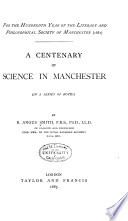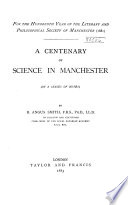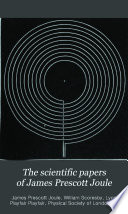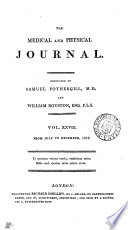 | Robert Angus Smith - 1883 - 500 pages
...in solids the particles are in a vibratory motion, the particles of the hottest bodies moving with greatest velocity and through the greatest space ;...fluids, besides the vibratory motion which must be considered greatest in 1 ' Fluidorum autem elasticorum praecipuae affectiones in eo posits sunt : 1°,... | |
 | Manchester Literary and Philosophical Society - 1883 - 516 pages
...in solids the particles are in a vibratory motion, the particles of the hottest bodies moving with greatest velocity and through the greatest space ;...fluids, besides the vibratory motion which must be considered greatest in 1 ' Fluidorum autem elasticorum prjecipune affectiones in eo positoe sunt :... | |
 | Manchester Literary and Philosophical Society - 1883 - 780 pages
...in solids the particles are in a vibratory motion, the particles of the hottest bodies moving with greatest velocity and through the greatest space ;...fluids, besides the vibratory motion which must be considered greatest in 1 • Kluulorum autem elasticorum pnccipiue affectiones in eo positn: sum :... | |
 | James Prescott Joule - 1884 - 706 pages
...the immateriality of heat, enunciated the beautiful hypothesis of a rotary motion. He says : — " It seems possible to account for all the phenomena...fluids, besides the vibratory motion, which must be considered greatest in the last, the particles have a motion round their own axes with different velocities,... | |
 | William Dunseath Eaton - 1920 - 280 pages
...measure answered by Sir Humphrey Davy, when considering heat in referring to motion, he pointed out that it seems possible to account for all the phenomena...be supposed that in solids the particles are in a state of vibration, those of the hottest bodies moving with the greatest velocity ; and that in liquid... | |
 | Royal Institution of Great Britain - 1902 - 1190 pages
...matter; following the dictum, that the immediate cause of the phenomenon of heat is motion. Thus he says, “It seems possible to account for all the phenomena of heat if it be supposed that in solids the p¿irticles are in a constant state of vibratory motion, the particles of the hottest bodies moving... | |
 | 1812 - 552 pages
...present themselves in bodies that are heated. Rejecting the generally-received hypothesis, he observes, " It seems possible to account for all the phenomena...besides the vibratory motion, which must be .conceived greater in the last, the particles have a motion round their own axis with different velocities, the... | |
 | 1812 - 730 pages
...the following manner. Rejecting received hypotheses, ho observes, " It seems possible to account fur all the phenomena of heat, if it be supposed, that, in solids, die /.- i< ha are in a constant state of vibratory motion, ibe particles of the bittest bodies moving... | |
| |